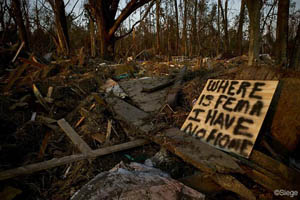For an alternative view of Lisa’s earlier post … i wonder if Gamma’s submission of Adam Stacey’s image with the “Adam Stacey/Gamma” attribution doesn’t show the strength of the Creative Commons concept. As i see it, Stacey published his image without any restrictions beyond attribution. Gamma, a well-respected photo agency started distributing the image attributed to Stacey. Isn’t this exactly what the CC license was supposed to enable — the free-flow of information on the net. perhaps Stacey chose the wrong license and he didn’t mean for his work to be distributed by a for-profit company. If so, that is a reminder to all of us to be careful about which Creative Commons license we choose. One thing i’m not clear on is whether Gamma referenced the CC license. They are supposed to do that and if they didn’t they should have.
Category Archives: citizen_journalism
off to seoul
Over the next couple of weeks I will be traveling in South Korea, the land that invented moveable type (1234), and which to this day is cooking up the future of the book on a high flame: from massivly multiplayer online games, to Samsung’s Ubiquitous Dream Hall, to the massively multiplayer citizen journalism site OhmyNews. It will take me about 20 hours to get there but I feel I’ll be stepping a few years into the future. I expect… well, I have no idea what to expect. And all this futurama is only the tip of the iceberg. I have a camera and it shouldn’t be too hard to find an internet connection, so expect a few postcards.
curbside at the WTO
A little while ago I came across this website maintained by a group of journalism students, business writers and bloggers in Hong Kong providing “frontline coverage” of the current WTO meetings. The site provides a mix of on-the-ground reporting, photography, event schedules, and useful digests of global press coverage of the week-long event and surrounding protests. It feels sort of halfway between a citizen journalism site and a professional news outlet. It’s amazing how this sort of thing can be created practically overnight.
They have a number of good photo galleries. Here are the Korean farmers jumping into Hong Kong Harbor:

alternative journalisms
Craigslist founder Craig Newmark has announced he will launch a major citizen journalism site within the next three months. As quoted in The Guardian:
The American public has lost a lot of trust in conventional newspaper mechanisms. Mechanisms are now being developed online to correct that.
…It was King Henry II who said: ‘Won’t someone rid me of that turbulent priest?’ We have seen a modern manifestation of that in the US with the instances of plausible deniability, the latest example of that has been the Valerie Plame case and that has caused damage.
Can a Craiglist approach work for Washington politics? It’s hard to imagine a million worker ants distributed across the nation cracking Plamegate. You’re more likely to get results from good old investigative reporting, but combined with a canny postmodern sense of spin (and we’re not just talking about the Bush administration’s spin, but Judith Miller’s spin, The New York Times’ spin) and the ability to make that part of the story. Combine the best of professional journalism with the best of the independent blogosphere. Can this be done?
Josh Marshall of Talking Points Memo fame wants to bridge the gap with a new breed of “reporter-blogger,” currently looking to fill two such positions — paid positions — for a new muckraking blog that will provide “wall-to-wall coverage of corruption, self-dealing, and betrayals of the public trust in today’s Washington” (NY Sun has details). While other high-profile bloggers sign deals with big media, Marshall clings fast to his independence, but recognizes the limitations of not being on the ground, in the muck, as it were. He’s banking that his new cyborgs might be able to shake up the stagnant Washington press corps from the inside, or at least offer readers a less compromised view (though perhaps down the road fledgeling media empires like Marshall’s will become the new media establishment).
 That’s not to say that the Craigslist approach will not be interesting, and possibly important. It was dazzling to witness the grassroots information network that sprung up on the web during Hurricane Katrina, including on the Craigslist New Orleans site, which became a clearinghouse for news on missing persons and a housing directory for the displaced. For sprawling catastrophes like this it’s impossible to have enough people on the ground. Unless the people on the ground start reporting themselves.
That’s not to say that the Craigslist approach will not be interesting, and possibly important. It was dazzling to witness the grassroots information network that sprung up on the web during Hurricane Katrina, including on the Craigslist New Orleans site, which became a clearinghouse for news on missing persons and a housing directory for the displaced. For sprawling catastrophes like this it’s impossible to have enough people on the ground. Unless the people on the ground start reporting themselves.
Citizen journalists also pick up on small stories that slip through the cracks. You could say the guy who taped the Rodney King beating was a “citizen journalist.” You could say this video (taken surreptitiously on a cellphone) of a teacher in a New Jersey high school flipping out at a student for refusing to stand for the national anthem is “citizen journalism.” Some clips speak for themselves, but more often you need context, you need to know how to frame it. The interesting thing is how grassroots journalism can work with a different model for contextualization. The New Jersey video made the rounds on the web and soon became a story in the press. One person slaps up some footage and everyone else comments, re-blogs and links out. The story is told collectively.
news and blogs to live under one roof at yahoo!
Yahoo’s revamped news search will present news and blogs side by side on the same page. In addition, the site will feature related images from Flickr, the social photo-sharing site that Yahoo purchased earlier this year, as well as user-contributed links from My Web (a feature that allows you to save and store web pages, and share them with others).
As before, the front news page will promote only stories from mainstream media sources, while the blog-news combo appears on a second-tier page that you arrive at when you conduct a specific search, or click for more details or more stories. No doubt, this was done, at least in part, to mollify angry news outlets who will likely call foul for making hard news share space with blogs. Still, the webscape has changed. All but the most cursory glance at the headlines will yield a richly confusing array of mainstream and grassroots sources.
(story, Yahoo Search Blog)
(thoughtful analysis from Tim Porter)
